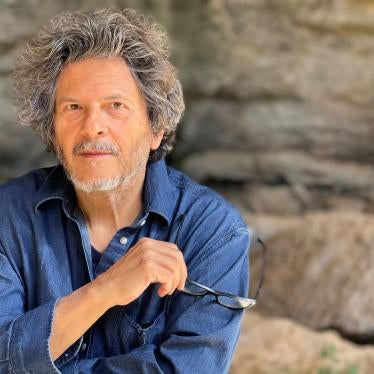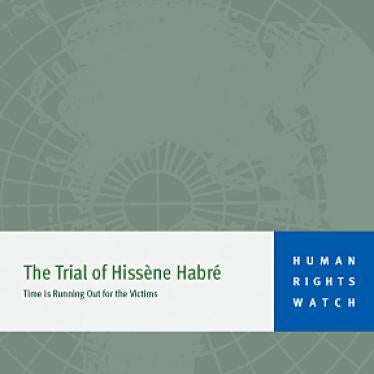John Laughland suggests that human rights organisations, including Human Rights Watch, are more concerned about the conviction of former heads of state than about them getting fair trials. Nothing could be further from the truth. (Fujimori's trial could be truly historic - if he is acquitted, October 9).
Human Rights Watch spent 15 years documenting the crimes of Saddam Hussein's regime and repeatedly called for him to be brought to justice. Yet we expressed serious concerns about the court established to try him and, after closely observing his trial, found it unfair because of fundamental procedural flaws in the trial itself, including the tribunal's lack of independence.
While Laughland says that we "had already proclaimed [Fujimori] to be guilty", we in fact pledged to "closely [watch] the proceedings in Peru to ensure a thorough and independent investigation and trial, in accordance with international standards of justice and due process". Similarly, while we have implored African leaders to bring Ethiopia's Mengistu Haile Mariam to justice (he is now in Zimbabwe), we have opposed Ethiopia's extradition request for fear that he would not get a fair trial and would be exposed to the death penalty.
Yes, we believe that abusive rulers should face justice. I have worked with the victims of Chile's Augusto Pinochet, Chad's Hissène Habré and Haiti's Raúl Cedrás, and I know that bringing their tormentors to book is an important way for victims to recover their dignity. In Haiti, for example, the total impunity with which a small elite literally got away with murder and plunder for generations had left the poor majority assuming that they had no rights.
Laughland has a point when he argues that "there has not been a single acquittal" in trials of former leaders. The problem, however, is with how the procedure is carried out. Often, as in Iraq, the conditions may not exist locally for dispassionate justice, and an international solution should be found. Victors' justice and sham trials do not advance the rule of law.
In a democratic state, trials of the ancient regime should juxtapose the meticulous rules of due process with the conduct of the accused. It was richly ironic that Pinochet, whose war tribunals conducted sham trials and ordered the summary execution of political opponents, took advantage of the full measure of British rule of law for well over a year. Yet it was precisely in honour of the rule of law that he was prosecuted.
According to Laughland, Fujimori is "the 24th head of state to face criminal trial for acts of state since Charles I was executed in 1649". That's not a lot, given the crimes of the past 360 years. In our own times, Mao Zedong, Idi Amin, Milton Obote, Ferdinand Marcos, Anastasio Somoza, Jean-Claude "Baby Doc" Duvalier and Mobutu Sese Seko, to name just a few, were never called to account.
That is why, as Laughland notes, we hailed the conviction of Jean Kambanda of Rwanda as "historic", called Slobodan Milosevic's trial "ground-breaking", and said that the trial of Charles Taylor of Liberia was "a break with the past". It used to be that rulers could brutalise their people, pillage their treasury and then just retire to the Riviera. The tide is turning, fortunately.
Reed Brody is counsel and spokesman for Human Rights Watch in Brussels.







